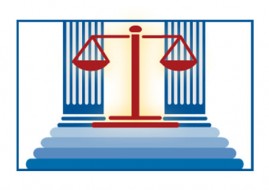First Department Okays Malpractice Suit Against Rhode Island Lawyer
[Originally published in NYPRR July 2002]
The Appellate Division, First Department has reversed a decision of the lower court and subjected a Rhode Island lawyer to its long-arm jurisdiction in a suit for legal malpractice arising from a New York personal injury claim. [Liberatore v. Calvino, 53 (5/30/2002).]
Defendant Calvino is an attorney admitted in Rhode Island and Massachusetts. He was retained on behalf of plaintiff, a Rhode Island minor, in connection with injuries suffered in an accident in New York City involving a bus owned by the City. Over a period of three years, Calvino performed various legal services, including advising the client on New York law, obtaining plaintiff’s medical records from Bellevue Hospital and her doctors, contacting the NYPD and the bus company, attempting to negotiate a settlement with the bus company, and threatening to bring an action in New York.
Unsuccessful in his claims, Calvino finally referred plaintiff to Vecchio, a New York lawyer. Vecchio entered into a retainer agreement with plaintiff and a fee-splitting agreement with Calvino. The two lawyers cooperated in seeking reimbursement of plaintiff’s medical bills.
In 1995, four years after the accident, Vecchio brought an action in New York. In 1997, Vecchio advised plaintiff and Calvino that, because the bus was owned by the City, the action was barred by the limitations imposed under Section 50-1 of the General Municipal Law (90 days for notice and one year for commencement of suit). Plaintiff’s action was eventually settled for $7,500. Vecchio recovered his share of the settlement and paid Calvino $776.97.
Plaintiff sued both Vecchio and Calvino for malpractice in neglecting the statutory time limitations. The claims against Calvino were assigned to a referee to determine whether the court had jurisdiction under New York’s long-arm statute [CPLR 302(a)(1)]. The referee found no jurisdiction, and the lower court affirmed.
In reversing, the Appellate Division found that Calvino had come within the terms of the statute by both “contracting to supply services in the state” and transacting business within the state.
Although telephone calls and written communications may not always provide a basis for long-arm jurisdiction, they were sufficient here because Calvino used them “to project himself” into the state in such manner that “he purposefully availed himself…of the benefits and protections of its laws.”
Calvino projected himself into New York by contracting with plaintiff to represent her “for purposes of obtaining a favorable settlement of her New York personal injury claim from New York tortfeasors in accordance with New York law.” He sought redress for plaintiff over a three-year period. He engaged in numerous contacts with New York entities by phone and letter. He relied on various New York statutes, including the Insurance Law and the Public Health Law. He wielded “the threat of litigation in New York courts.”
“The totality of the circumstances of Calvino’s representation to plaintiff for several years that he was sufficiently skilled and knowledgeable to pursue her New York claim at the pre-litigation stage makes it unquestionably clear and just that he be subject to New York jurisdiction for the legal malpractice claim resulting from his negligence in providing such services.”
Under the cases applying constitutional due process requirements to a court’s exercise of long-arm jurisdiction, the defendant must be shown to have “minimum contacts” with the state and the plaintiff must establish that jurisdiction comports with “traditional notions of fair play and substantial justice.” These requirements were met by the facts in this case.
Editor’s note: In Keefe v. Kirschenbaum & Kirschenbaum, PC [No. 01SA203], the Colorado Supreme Court applied the Colorado long-arm statute to a malpractice claim by a Colorado resident against a New York lawyer who had never set foot in Colorado. [See, NYPRR, April 2002,for a summary of the Colorado decision.]
In Keefe, a Colorado resident was sued in the New York courts. His Colorado lawyer referred the matter to lawyer Kirschenbaum in New York.
Kirschenbaum ignored the matter over many years and failed in his less-than-zealous efforts to contact the Colorado client. The New York court granted summary judgment against the Colorado resident. The matter was eventually settled, but the Colorado resident sued both Kirschenbaum and his Colorado lawyer for malpractice.
The Colorado Supreme Court rejected Kirschenbaum’s claim of immunity from suit in Colorado. It relied on the following activities by Kirschenbaum: communication with residents of Colorado by phone and mail; negotiating the terms of representation; requesting and receiving authorization for legal services; demanding and receiving legal fees.
The lesson to be drawn from the New York and the Colorado cases: A lawyer admitted in one state who performs any legal services within his state for an out-of-state client, or in an out-of state matter for a resident client, may be subject to jurisdiction in the courts of the other state even though he never sets foot in that state. One possible solution: the Colorado court suggested that it might respect a written agreement between lawyer and client limiting jurisdiction over malpractice claims against the lawyer to the lawyer’s home state.
DISCLAIMER: This article provides general coverage of its subject area and is presented to the reader for informational purposes only with the understanding that the laws governing legal ethics and professional responsibility are always changing. The information in this article is not a substitute for legal advice and may not be suitable in a particular situation. Consult your attorney for legal advice. New York Legal Ethics Reporter provides this article with the understanding that neither New York Legal Ethics Reporter LLC, nor Frankfurt Kurnit Klein & Selz, nor Hofstra University, nor their representatives, nor any of the authors are engaged herein in rendering legal advice. New York Legal Ethics Reporter LLC, Frankfurt Kurnit Klein & Selz, Hofstra University, their representatives, and the authors shall not be liable for any damages resulting from any error, inaccuracy, or omission.
Related Posts
« Should Lawyers Serve as Corporate Directors? ABA Adopts Three New Rules »













